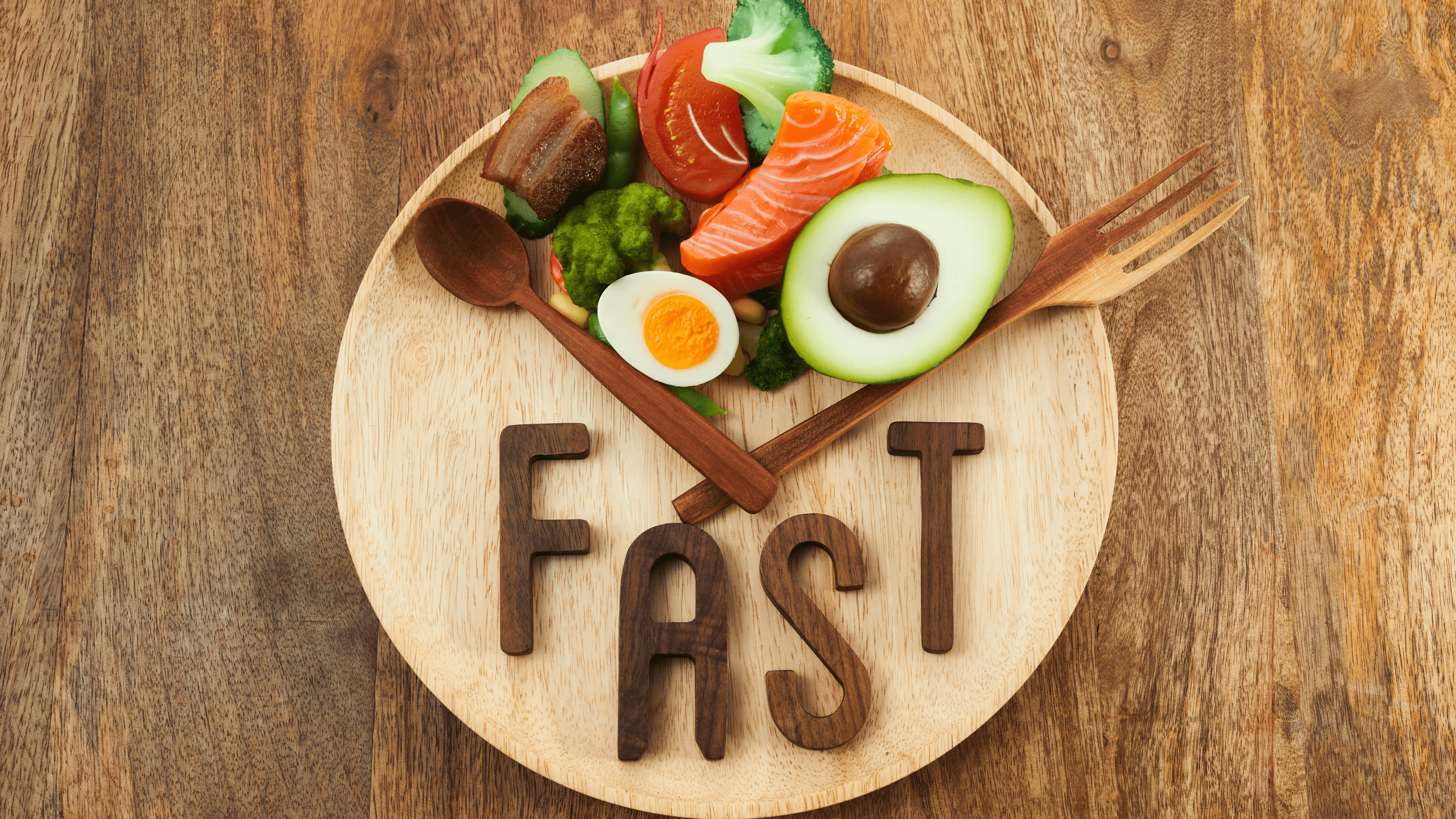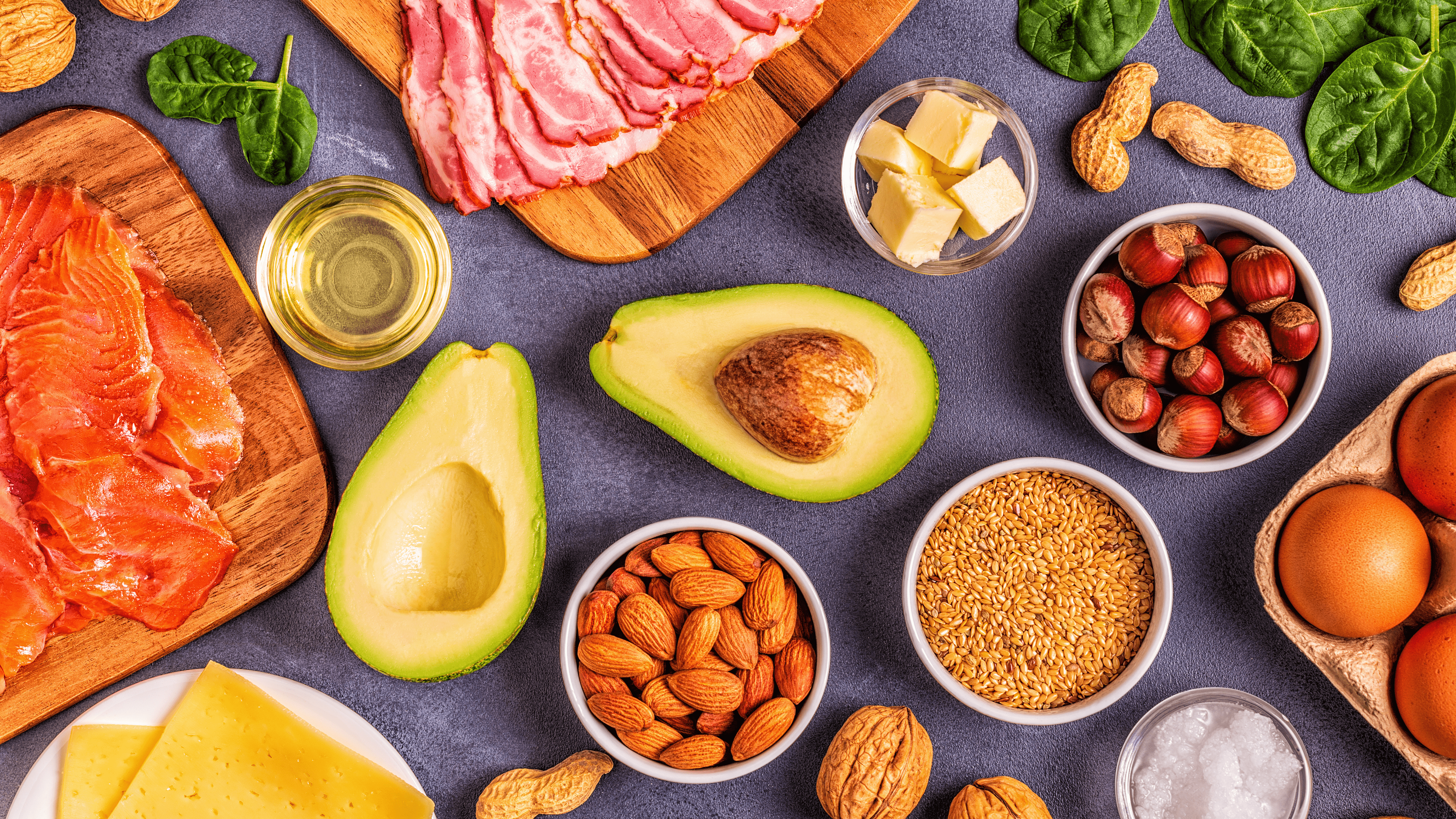Introduction
Weight loss is a goal shared by many adults, but its success can vary. Studies show that within five years, 60% of dieters regain more weight than they initially lost through dieting1. However, despite the ups and downs, striving for a healthy weight is admirable and comes with numerous health perks! In this article, we will delve into various energy-restricted diets designed to help shed weight and body fat.
Basic Principles of Weight Loss
The fundamental principle of weight loss or gain is based on the balance between calorie intake and expenditure, commonly referred to as caloric balance. While the concept of caloric balance is correct, it oversimplifies the complex factors influencing weight changes.
Major Diet Types
With so many diet types out there, it’s easy to feel lost in a sea of conflicting information. Do not worry, we’re here to help navigate through it all! In this section, we will dive into the key diet types and concepts, shedding light on the science behind them. Our focus will be on three of the most talked-about options: the ketogenic diet, intermittent fasting, and meal replacements2.
Intermittent Fasting:

Intermittent fasting involves alternating periods of eating and fasting, emphasizing when to eat rather than specific food choices. It includes variations such as alternate-day fasting, whole-day fasting, and time-restricted eating.
Studies on intermittent fasting, which includes methods like 24-hour fasts or daily time-restricted eating windows (for example, 16 hours of fasting and an 8-hour eating period, or 20 hours fasting and 4 hours eating), have shown promising results for fat loss and weight maintenance5. In fact, it has been found to be as good as, if not better than, daily calorie restriction. Plus, many find intermittent fasting helps with controlling appetite better.
Types of intermittent fasting:
- Alternate-day fasting
- Whole-day fasting
- Time-restricted eating (e.g., 16hr fasting/8hr eating period or 20/4)
Pros of intermittent fasting6:
- Comparable or superior outcomes in body composition changes compared to daily calorie restriction
- No precise calorie counting required during unrestricted eating periods
- More flexible in terms of eating period
- Evidence of weight loss in time-restricted eating, combined with exercise
Cons of intermittent fasting:
- Unhealthy food choices and overeating may occur during unrestricted eating periods
- Requires careful planning for optimal exercise performance
- Additional considerations for certain health conditions, such as diabetes; especially when medications are involved
Meal Replacement Diets:

Meal replacement diets are all about convenience – they include pre-packaged, low-calorie products providing 800 to 1,200 calories per day. Instead of regular meals, you have shakes or snacks for one or two meals, along with some other healthy, low-calorie foods. They are great for shedding pounds quickly, but keeping the weight off in the long run depends on making lasting changes to your eating habits and lifestyle.
Considerations for meal replacement diets include7:
- Adequate protein quantity and quality to maintain lean body mass
- Balanced carbohydrate and fat content with added soluble and insoluble fiber
- Inclusion of essential vitamins and minerals for nutritional support
Pros of meal replacement diets:
- Convenient pre-packaged products reduce the need for cooking and planning
- Helps break unhealthy eating patterns and snacks
- Easily accessible at health food stores and pharmacies
Cons of meal replacement diets8:
- Lack of diversity may affect adherence and long-term commitment
- Varying quality of meal replacement products
Ketogenic Diet (KD):

The ketogenic diet, or KD, has gained popularity in recent years as a variation of low-carbohydrate diets. It is uniquely defined by the measurable increase in circulating ketones, produced when the body burns stored fat. Achieving this elevated ketone state is known as nutritional ketosis.
It is important to understand the difference between nutritional ketosis and diabetic ketoacidosis (DKA), a serious condition that affects people with diabetes. Nutritional ketosis happens when you follow low-carb diets, fast, or consume a lot of alcohol. Unlike DKA, which can be life-threatening, nutritional ketosis doesn’t lead to acidosis.
The typical composition of a ketogenic diet includes:
- 5 to 10% carbohydrates
- 15 to 20% protein
- 70 to 80% fat
While advocates claim metabolic advantages of ketosis for fat loss, scientific evidence is inconclusive. Controlled studies comparing ketogenic and non-ketogenic diets with similar calorie and protein content have not consistently shown significant differences in energy expenditure or fat loss.
Some people suggest that we need longer studies to fully understand how our bodies adapt to ketosis, where we shift from using glucose to relying more on fat for energy. However, studies show that after about a week of getting into ketosis, the body starts burning a higher percentage of fat for energy according to objective measurements.
As ketogenic diets may potentially contain high levels of saturated fat intake which can result in increasing total and LDL-cholesterol levels, it is advisable to reduce saturated and trans-fat intake and instead, incorporate healthy fats in the ketogenic diet. These healthy fats include polyunsaturated and monounsaturated fats, found in fish, nuts, seeds and avocado, amongst others.
Pros of the ketogenic diet3,4:
- Improved blood sugar control
- Enhanced mental clarity
- Appetite suppression or hunger control even without calorie restriction
- Simplified meal planning and dietary decision-making
Cons of the ketogenic diet:
- Strict restrictions on fruits, vegetables, whole grains, and legumes, which are essential sources of fiber and nutrients
- Higher saturated fat intake may lead to increased total and LDL-cholesterol levels
- Limited evidence of metabolic advantages compared to non-ketogenic diets with similar protein and calorie content
- Difficulty in long-term adherence due to extreme dietary restrictions
Conclusion
Choosing the right diet is all about finding what works best for you – your tastes, how satisfied you feel, support for staying active, and how it fits into your life. Remember, sticking with it for the long haul is key to success.
If weight loss is on your mind, it is important to pick a diet that suits your lifestyle, supports your well-being, and is something you can stick with. Even a small drop in weight, like 5-10%, can bring big health perks, like better blood pressure, cholesterol, and blood sugar levels. It is advisable to speak to a dietitian or medical professional who can guide you in your weight loss journey.
At Aspen Diabetes and Endocrine Clinic, we understand that there is no one-size-fits-all solution for weight loss. That is why we are here to help you find the perfect fit. Reach out today for more information or to schedule an appointment with our doctor and dietitian!
References:
- Hall KD, Kahan S. Maintenance of Lost Weight and Long-Term Management of Obesity. Med Clin North Am. 2018 Jan;102(1):183-197. doi: 10.1016/j.mcna.2017.08.012. PMID: 29156185; PMCID: PMC5764193.
- Kim JY. Optimal Diet Strategies for Weight Loss and Weight Loss Maintenance. J Obes Metab Syndr. 2021 Mar 30;30(1):20-31. doi: 10.7570/jomes20065. PMID: 33107442; PMCID: PMC8017325.
- Dowis K, Banga S. The Potential Health Benefits of the Ketogenic Diet: A Narrative Review. Nutrients. 2021 May 13;13(5):1654. doi: 10.3390/nu13051654. PMID: 34068325; PMCID: PMC8153354.
- Paoli A, Bianco A, Moro T, Mota JF, Coelho-Ravagnani CF. The Effects of Ketogenic Diet on Insulin Sensitivity and Weight Loss, Which Came First: The Chicken or the Egg? Nutrients. 2023 Jul 12;15(14):3120. doi: 10.3390/nu15143120. PMID: 37513538; PMCID: PMC10385501.
- Vasim I, Majeed CN, DeBoer MD. Intermittent Fasting and Metabolic Health. Nutrients. 2022 Jan 31;14(3):631. doi: 10.3390/nu14030631. PMID: 35276989; PMCID: PMC8839325.
- Liu J, Zhong Y, Luo XM, Ma Y, Liu J, Wang H. Intermittent Fasting Reshapes the Gut Microbiota and Metabolome and Reduces Weight Gain More Effectively Than Melatonin in Mice. Front Nutr. 2021 Nov 24;8:784681. doi: 10.3389/fnut.2021.784681. PMID: 34901130; PMCID: PMC8652062.
- Astbury NM, Piernas C, Hartmann-Boyce J, Lapworth S, Aveyard P, Jebb SA. A systematic review and meta-analysis of the effectiveness of meal replacements for weight loss. Obes Rev. 2019 Apr;20(4):569-587. doi: 10.1111/obr.12816. Epub 2019 Jan 24. PMID: 30675990; PMCID: PMC6849863.
- Lowe MR, Butryn ML, Zhang F. Evaluation of meal replacements and a home food environment intervention for long-term weight loss: a randomized controlled trial. Am J Clin Nutr. 2018 Jan 1;107(1):12-19. doi: 10.1093/ajcn/nqx005. PMID: 29381791; PMCID: PMC5972600.
